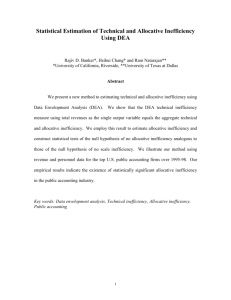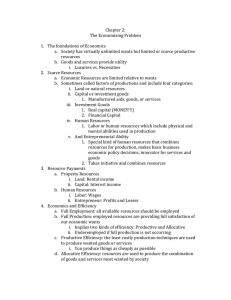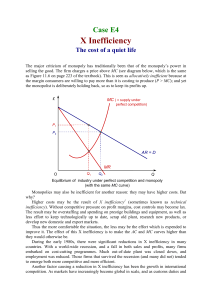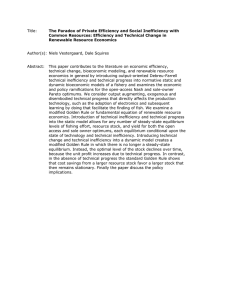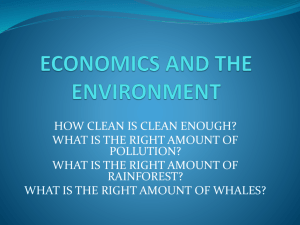Document 13880666
advertisement
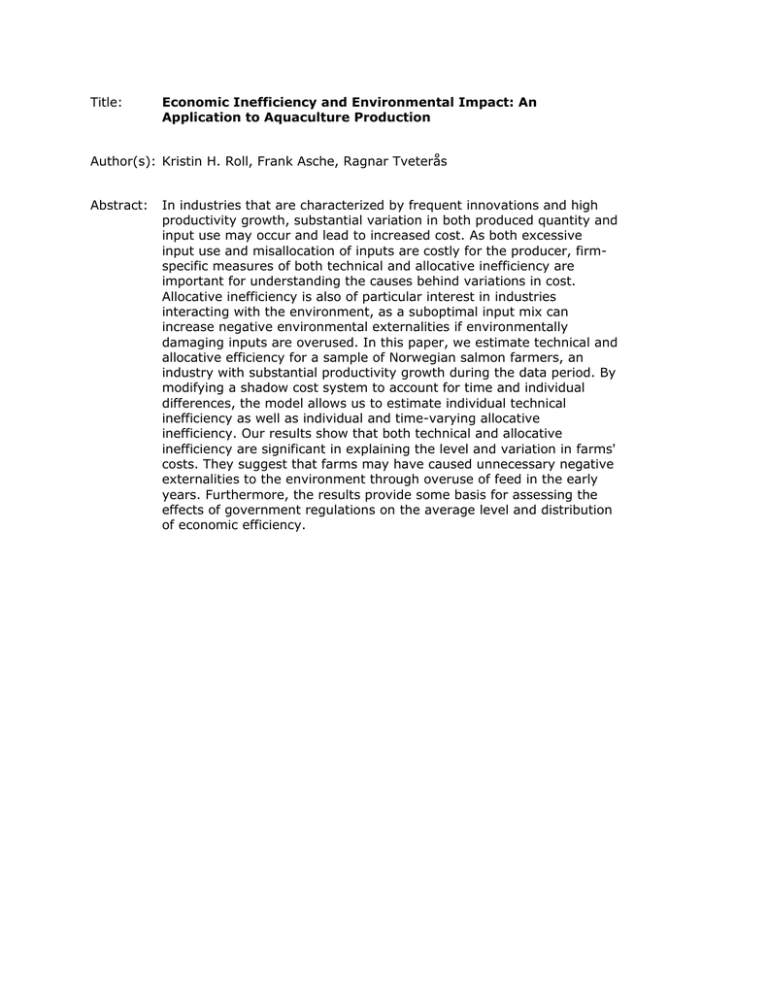
Title: Economic Inefficiency and Environmental Impact: An Application to Aquaculture Production Author(s): Kristin H. Roll, Frank Asche, Ragnar Tveterås Abstract: In industries that are characterized by frequent innovations and high productivity growth, substantial variation in both produced quantity and input use may occur and lead to increased cost. As both excessive input use and misallocation of inputs are costly for the producer, firmspecific measures of both technical and allocative inefficiency are important for understanding the causes behind variations in cost. Allocative inefficiency is also of particular interest in industries interacting with the environment, as a suboptimal input mix can increase negative environmental externalities if environmentally damaging inputs are overused. In this paper, we estimate technical and allocative efficiency for a sample of Norwegian salmon farmers, an industry with substantial productivity growth during the data period. By modifying a shadow cost system to account for time and individual differences, the model allows us to estimate individual technical inefficiency as well as individual and time-varying allocative inefficiency. Our results show that both technical and allocative inefficiency are significant in explaining the level and variation in farms' costs. They suggest that farms may have caused unnecessary negative externalities to the environment through overuse of feed in the early years. Furthermore, the results provide some basis for assessing the effects of government regulations on the average level and distribution of economic efficiency.
